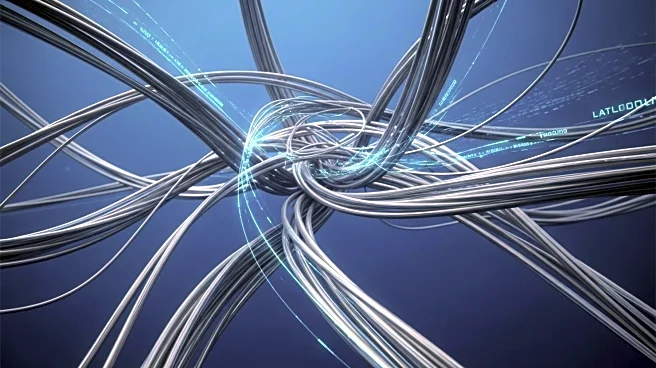What's Happening?
A Finnish newspaper has reported growing security concerns over the Chinese ownership of a firm operating underwater data cables in the Baltic Sea. The Chinese state-owned Citic Telecom CPC, through its subsidiaries, owns three telecommunications cables linking Finland, Estonia, and Sweden. While there are no allegations of wrongdoing, the control of these cables by a Chinese entity has raised alarms due to potential access to data traffic. The cables are considered critical infrastructure, and their management by a Chinese firm is seen as problematic by security experts.
Why It's Important?
The ownership of submarine cables by a Chinese state-owned company is significant due to the strategic importance of these cables in global communications. They carry vast amounts of data, including sensitive information from governments and businesses. The potential for data interception or disruption poses a risk to national security and data integrity for NATO countries. This situation highlights the broader geopolitical tensions surrounding China's expanding influence in global tech infrastructure, particularly through its Digital Silk Road initiative.
What's Next?
Scrutiny over China's involvement in global data infrastructure is likely to increase. The U.S. and European Union may consider implementing stricter regulations to limit Chinese control over critical infrastructure. This could involve new policies to restrict the use of Chinese technology in data cables and limit licenses for Chinese companies. The ongoing geopolitical dynamics will likely influence future decisions regarding international data security and infrastructure management.
Beyond the Headlines
The situation underscores the complex interplay between technological advancement and national security. As countries become more reliant on digital infrastructure, the control and management of such systems become critical. The concerns over Chinese ownership reflect broader apprehensions about cybersecurity and the potential for geopolitical leverage through technological dominance. This development may prompt a reevaluation of international partnerships and strategies to safeguard critical infrastructure.








